
Oujda: The Gateway to the East
Oujda, a charming city in northeastern Morocco, is often referred to as the Gateway to the East. It is a unique blend of old-world charm and modernity. Rich in history and culture, Oujda offers visitors a chance to explore its vibrant markets, stunning architecture, and delicious cuisine. The city’s roots date back over a thousand years, and its strategic position has made it a melting pot of cultures and influences. One of the city’s highlights is the Medina of Oujda. Walking through its narrow streets, you will find an array of shops selling everything from traditional Moroccan crafts to fresh produce. The centerpiece of the Medina is the Grand Mosque, an architectural marvel that dates back to the 13th century. Nearby, the Sidi Yahya oasis offers a peaceful retreat with its lush greenery and historical significance. Oujda is also known for its music and festivals. The city hosts the annual Rai Music Festival, celebrating the popular genre that originated in this region. This event attracts musicians and visitors from all over the world, making it a lively and colorful time to visit. Additionally, the city's parks and gardens, such as Parc Lalla Aicha, provide serene spots to relax and enjoy the pleasant climate.
Local tips in Oujda
- Visit the Medina early in the morning to avoid the crowds and enjoy a peaceful shopping experience.
- Try the local dish 'Harira' soup at one of the traditional eateries for an authentic Moroccan meal.
- If visiting during the Rai Music Festival, book your accommodation well in advance as the city gets very busy.
- Take a day trip to the nearby Saidia beach for a relaxing time by the Mediterranean Sea.
- Learn a few basic phrases in Arabic or French; it will enhance your interactions with the locals.
Oujda: The Gateway to the East
Oujda, a charming city in northeastern Morocco, is often referred to as the Gateway to the East. It is a unique blend of old-world charm and modernity. Rich in history and culture, Oujda offers visitors a chance to explore its vibrant markets, stunning architecture, and delicious cuisine. The city’s roots date back over a thousand years, and its strategic position has made it a melting pot of cultures and influences. One of the city’s highlights is the Medina of Oujda. Walking through its narrow streets, you will find an array of shops selling everything from traditional Moroccan crafts to fresh produce. The centerpiece of the Medina is the Grand Mosque, an architectural marvel that dates back to the 13th century. Nearby, the Sidi Yahya oasis offers a peaceful retreat with its lush greenery and historical significance. Oujda is also known for its music and festivals. The city hosts the annual Rai Music Festival, celebrating the popular genre that originated in this region. This event attracts musicians and visitors from all over the world, making it a lively and colorful time to visit. Additionally, the city's parks and gardens, such as Parc Lalla Aicha, provide serene spots to relax and enjoy the pleasant climate.
When is the best time to go to Oujda?
Iconic landmarks you can’t miss
Bab Sidi Abdel Wahab
Discover the historical marvel of Bab Sidi Abdel Wahab in Oujda, a must-see destination for culture enthusiasts and travelers seeking authenticity.
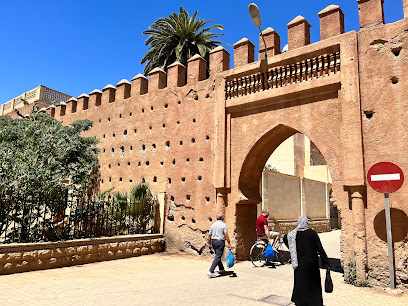
نزل أطلس
Discover Hotel Atlas Terminus in Oujda, where modern luxury meets the warmth of Moroccan hospitality in a vibrant cultural landscape.

Parc Lalla Aicha
Experience the tranquility and natural beauty of Parc Lalla Aicha, a must-visit garden in Oujda, Morocco, perfect for relaxation and family outings.
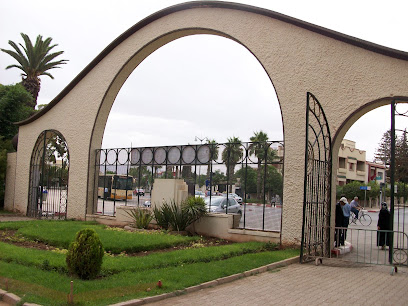
SIDI MAAFA Forest
Explore the lush beauty and tranquility of Sidi Maafa Forest, a national treasure in Oujda, Morocco, perfect for nature lovers and adventure seekers.
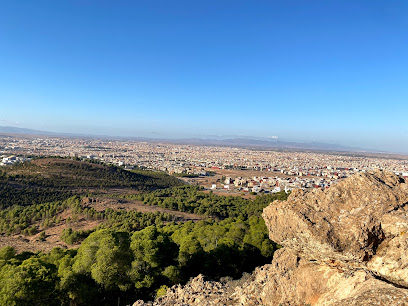
Parc Écologique d'Oujda
Explore the tranquil beauty of Parc Écologique d'Oujda, a lush urban park in Oujda offering diverse flora, serene pathways, and a peaceful retreat for all.
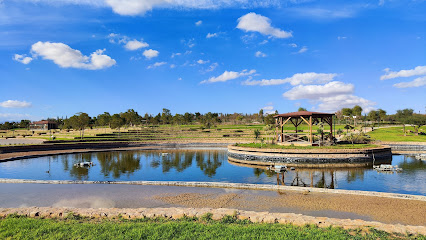
M & J
Discover the culinary delights of Oujda at M & J, where authentic Moroccan flavors meet a warm and inviting atmosphere.
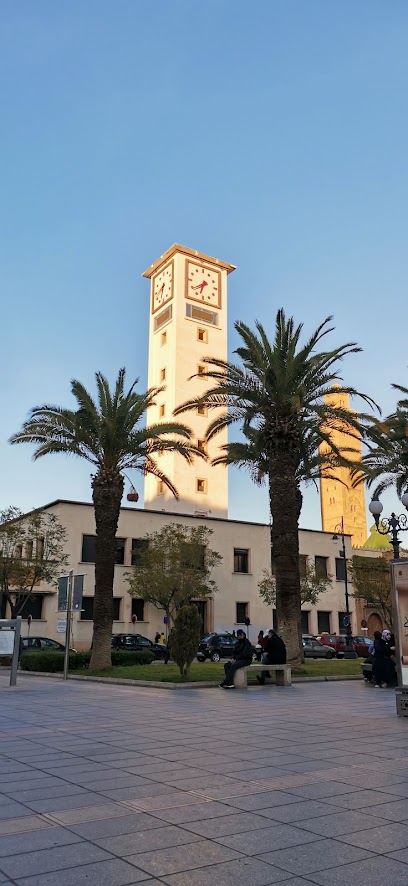
Parc Lalla Meriem
Experience the charm of Parc Lalla Meriem, a lush green escape in Oujda, Morocco, perfect for leisurely strolls and cultural encounters.
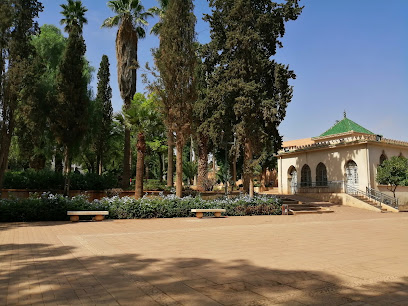
Complexe Le Tropical
Discover the perfect blend of relaxation and culinary delight at Complexe Le Tropical in Oujda, Morocco, featuring a stunning outdoor pool and exquisite dining options.
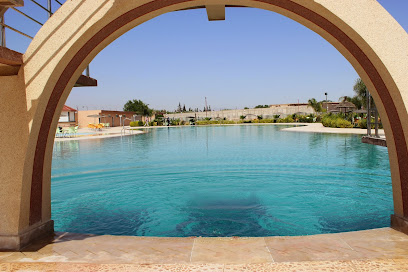
Mohammed VI Mosque
Explore the breathtaking Mohammed VI Mosque in Oujda, a stunning architectural masterpiece and a vital part of Morocco's cultural heritage.
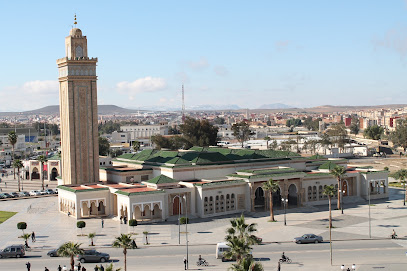
Radwan mosque
Explore the exquisite Radwan Mosque in Oujda, a stunning example of Moroccan architecture and a serene spiritual retreat in the heart of the city.
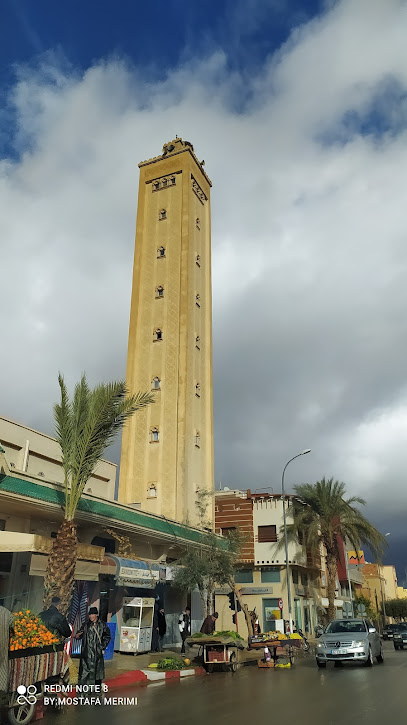
Place Bab Algharbi Garden
Experience the tranquility of Place Bab Algharbi Garden in Oujda, a vibrant community garden perfect for relaxation and connecting with nature.
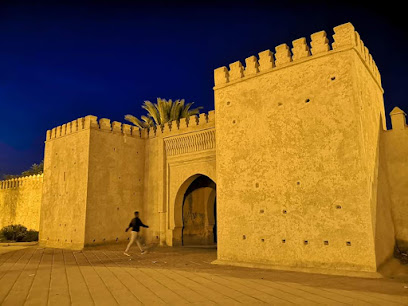
Mosque of Omar bin Abdul Aziz
Explore the exquisite Mosque of Omar bin Abdul Aziz in Oujda, a stunning example of Moroccan architecture and a serene retreat for spiritual reflection.
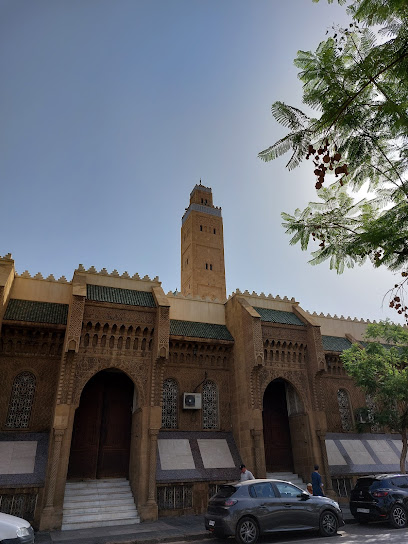
Dar Berrissoul
Discover the vibrant performing arts scene at Dar Berrissoul in Oujda, where culture, music, and tradition come alive in an intimate theater setting.
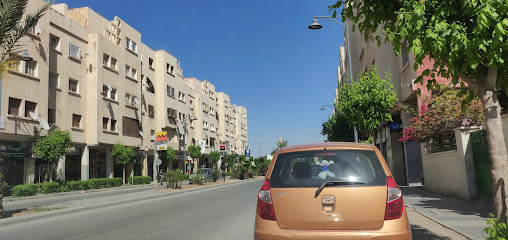
Les Trois Fontaines (Fontaine de la kasbah)
Explore Les Trois Fontaines in Oujda, Morocco, a historical landmark that beautifully showcases the city's rich heritage and architectural charm.
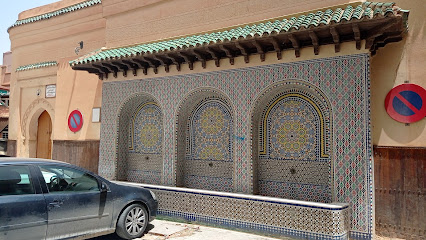
BaB Algharbi باب الغربي
Explore the historic BaB Algharbi in Oujda, a stunning gateway reflecting Morocco's rich architecture and cultural heritage.
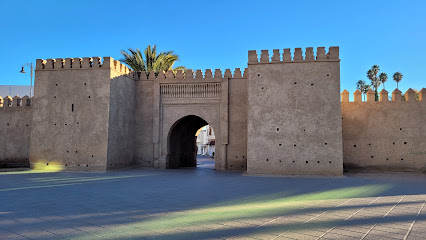
Unmissable attractions to see
Bab Sidi Abdel Wahab
Experience the historical allure of Bab Sidi Abdel Wahab in Oujda, a gateway to Morocco's rich cultural heritage and vibrant local life.
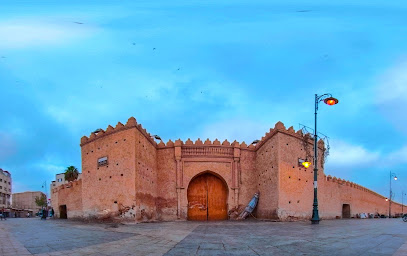
Parc Lalla Aicha
Explore the tranquil beauty of Parc Lalla Aicha, a stunning garden oasis in Oujda, perfect for relaxation, exploration, and experiencing local culture.
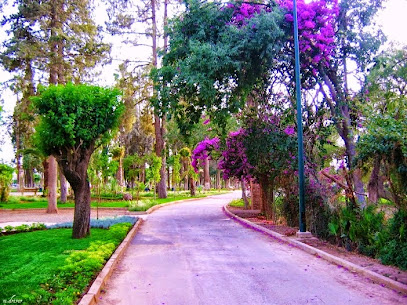
SIDI MAAFA Forest
Explore the tranquility of SIDI MAAFA Forest, a national forest near Oujda offering lush landscapes, diverse wildlife, and ideal picnic spots.
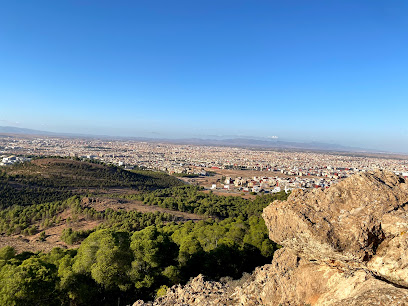
Sidi Yahya Park
Experience the beauty and tranquility of Sidi Yahya Park, a serene escape in Oujda, Morocco, perfect for relaxation and outdoor activities.
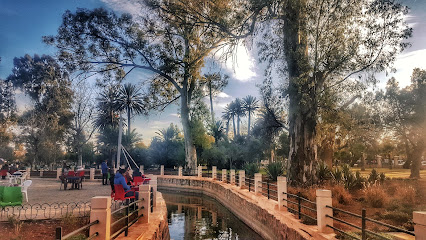
Al Qods Garden
Al Qods Garden: A lush green sanctuary in Oujda perfect for relaxation, family outings, and nature appreciation.
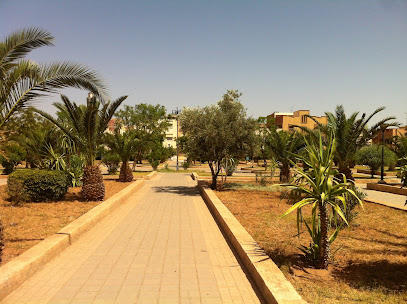
Parc Écologique d'Oujda
Discover the breathtaking beauty of Parc Écologique d'Oujda, a serene park with lush landscapes and diverse flora in the heart of Oujda, Morocco.
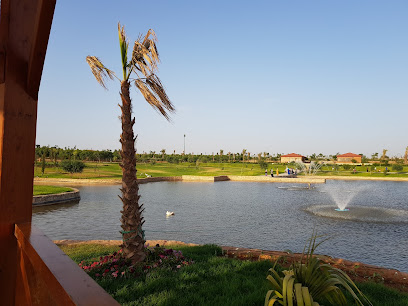
Parc Lalla Meriem
Explore the lush beauty of Parc Lalla Meriem, a tranquil park in Oujda perfect for relaxation, recreation, and experiencing local culture.
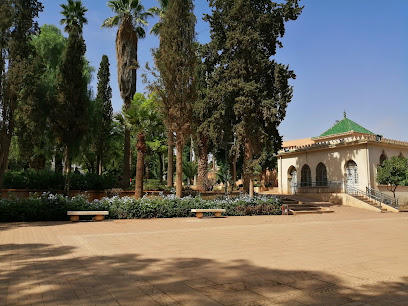
Mohammed VI Mosque
Explore the stunning Mohammed VI Mosque in Oujda, a masterpiece of Moroccan architecture and a serene place of worship, showcasing rich cultural heritage.
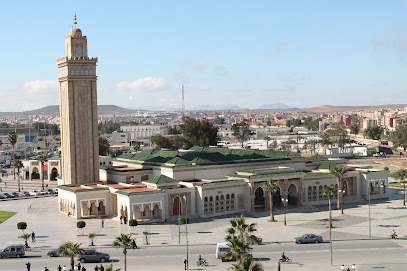
Golf Parc isly
Experience the tranquility of Golf Parc Isly in Oujda, a picturesque park perfect for relaxation, picnics, and enjoying nature's beauty.
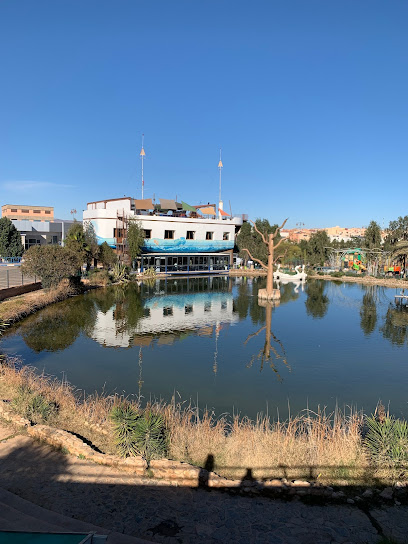
Parc d'Attraction Najd
Experience tranquility and nature in the heart of Oujda at Parc d'Attraction Najd, a perfect haven for relaxation and leisure.
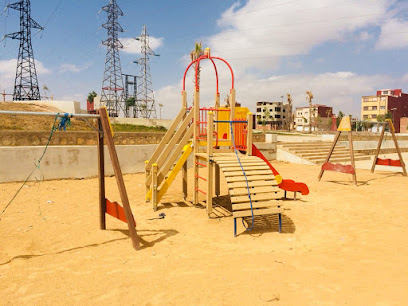
Les Trois Fontaines (Fontaine de la kasbah)
Explore the enchanting Les Trois Fontaines, a historical landmark in Oujda, where beauty and culture blend in a serene oasis.
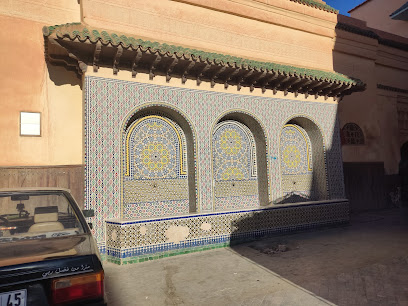
Place Oujda capitale de la culture arabe
Experience the serene beauty and cultural richness of Place Oujda, the heart of Arab culture in Morocco, where nature and heritage coexist harmoniously.
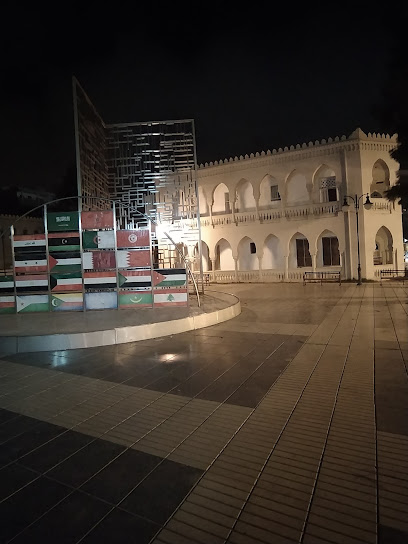
Essential places to dine
Trocadero
Discover the vibrant flavors of Morocco at Trocadero – Oujda's favorite restaurant and café for locals and tourists alike.
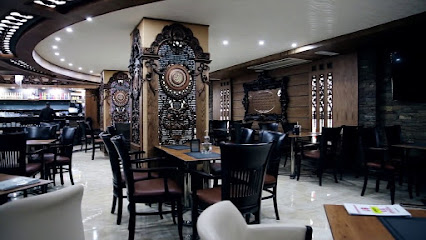
Ôregal
Experience authentic Moroccan flavors at Ôregal in Oujda - where every dish tells a story.
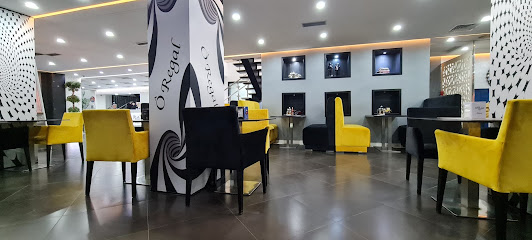
MAK'DAL OUJDA
Experience authentic Moroccan cuisine at MAK'DAL OUJDA - where every dish tells a story.
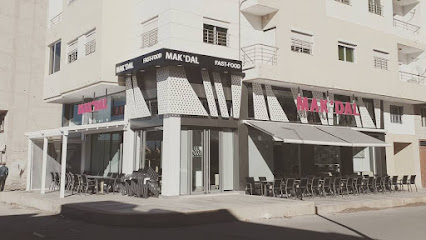
مطعم شهيوات لمعلم
Experience the authentic taste of Morocco at مطعم شهيوات لمعلم in Oujda - where traditional flavors meet modern dining.
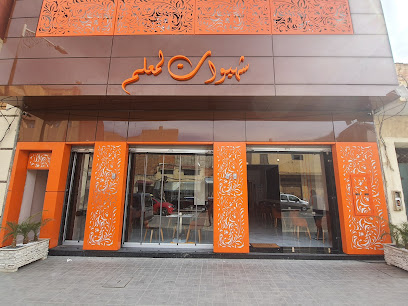
مطعم و فران لحسن
Discover authentic Moroccan cuisine at مطعم و فران لحسن in Oujda—where tradition meets flavor in an inviting atmosphere.
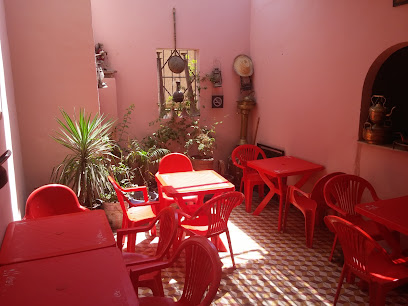
El Kabados
Experience the essence of Moroccan cuisine at El Kabados in Oujda – where every meal tells a story.
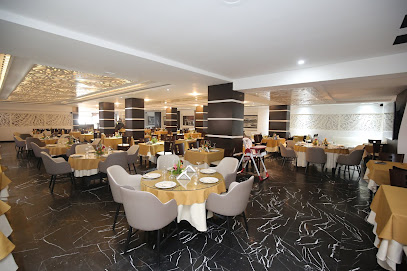
M & J
Discover the flavors of Morocco at M & J in Oujda - where tradition meets culinary innovation.
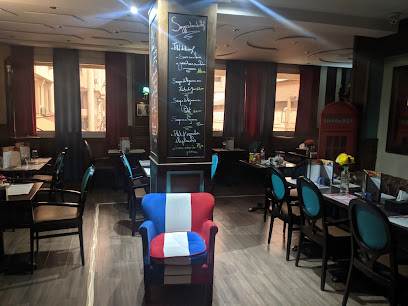
مشويات أم القرى على الطريقة التقليدية
Savor authentic Moroccan barbecue at مشويات أم القرى in Oujda - where tradition meets flavor in every bite.
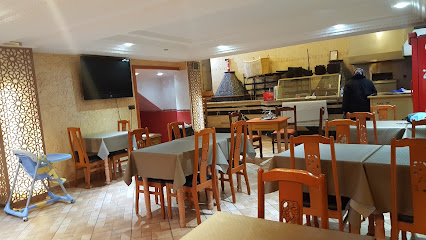
Tokyo Sushi
Experience authentic Japanese cuisine at Tokyo Sushi in Oujda—savor exquisite sushi and Asian delicacies in a cozy atmosphere.
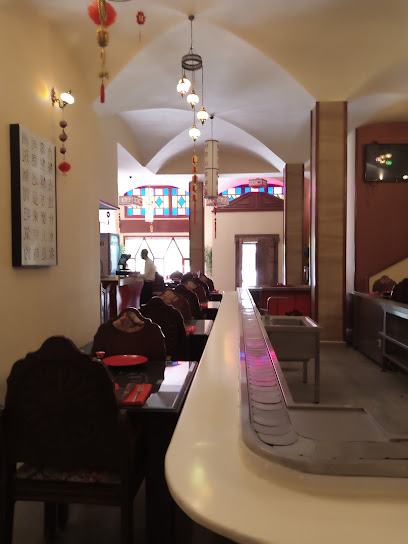
Blankok Burger
Discover gourmet burgers in Oujda at Blankok Burger - where every bite is packed with flavor!
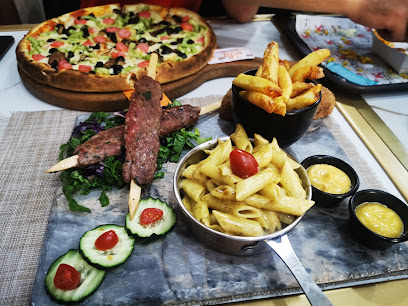
Beli Gourmet & Café - restaurant Oujda
Discover the flavors of Morocco at Beli Gourmet & Café in Oujda – your go-to spot for delightful breakfasts and local delicacies.
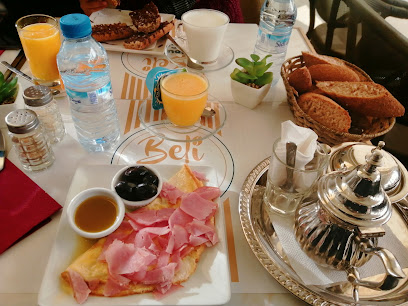
La Pelle à Pizza
Experience authentic Italian pizza at La Pelle à Pizza in Oujda – where flavor meets comfort in every slice.
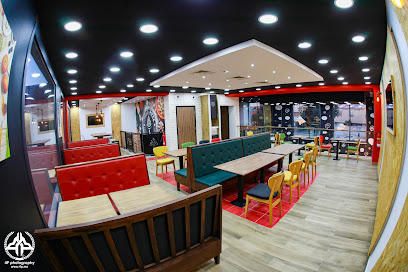
LUNARIA, Restaurant - Coffee club.
Discover authentic Moroccan flavors at LUNARIA in Oujda - where culinary tradition meets modern elegance.
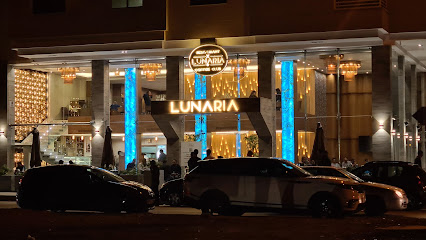
National
Experience authentic Moroccan flavors at National Restaurant in Oujda – where delicious cuisine meets inviting atmosphere.
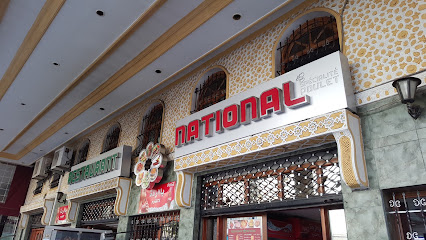
snack bravo
Experience authentic Moroccan cuisine at Snack Bravo in Oujda - where every dish tells a story of flavor and tradition.
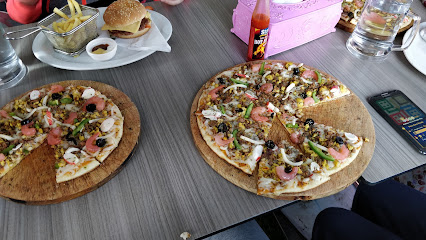
Markets, malls and hidden boutiques
YAC Shop
Explore YAC Shop in Oujda for organic delights, natural cosmetics, and unique handicrafts that celebrate Morocco's rich culture.
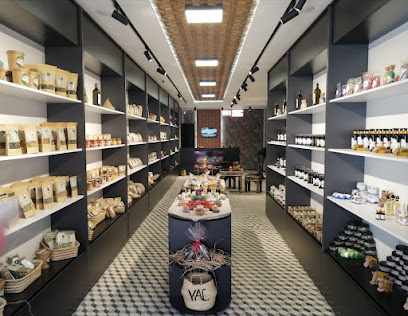
Original MenShop
Explore the essence of modern men's fashion at Original MenShop in Oujda, offering a unique blend of style and local craftsmanship.
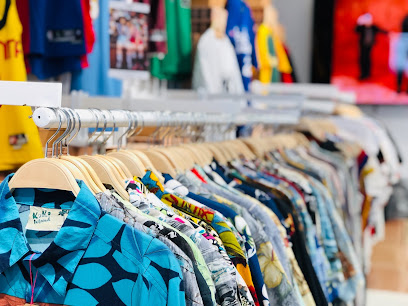
Boutique Biladi
Explore Boutique Biladi in Oujda for an exquisite blend of traditional and modern Moroccan fashion that enchants every visitor.
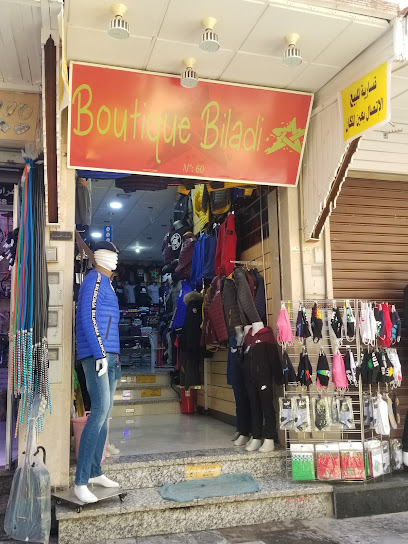
Oujdi shop
Explore Oujdi Shop: A treasure trove of Moroccan fashion blending tradition with contemporary style in the heart of Oujda.
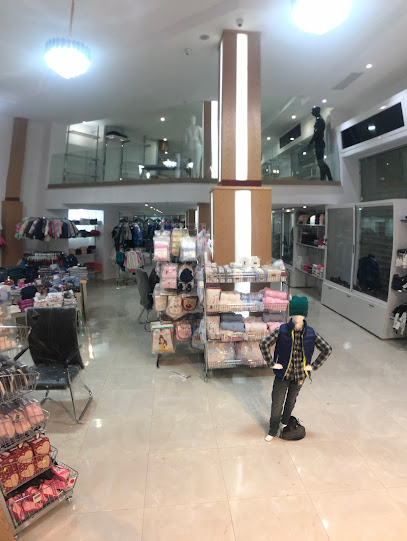
Evred Shop Oujda
Explore Evred Shop Oujda for a unique blend of local fashion and style, perfect for tourists seeking authentic clothing and accessories.
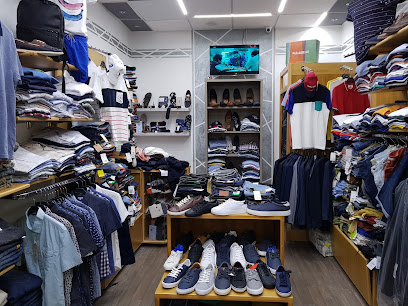
Oujda Shop
Explore Oujda Shop, your go-to destination for unique clothing and Moroccan fashion in Oujda, Morocco for a memorable shopping experience.
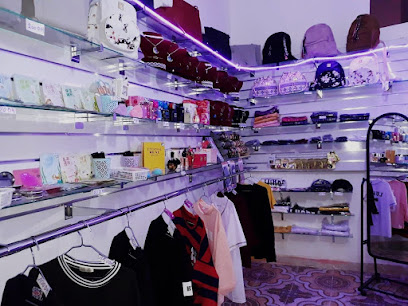
UniqueBox (Cadeaux Personnalisés,cadeau anniversaire)
Explore UniqueBox in Oujda for personalized gifts and unique souvenirs that make every occasion special.
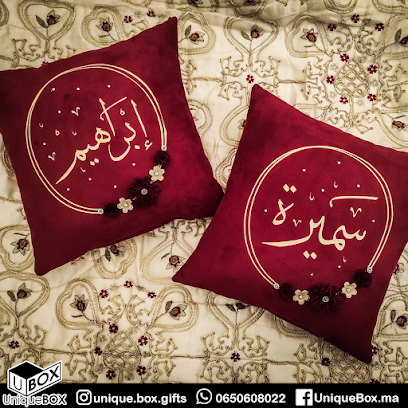
ÇUKUR
Explore the vibrant charm of Çukur in Oujda, where local culture meets delightful shopping in a warm, inviting atmosphere.
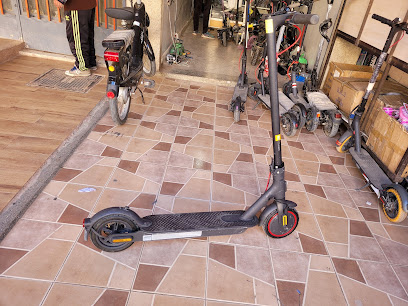
نظارات بن طلحة
Explore نظارات بن طلحة, a charming gift shop in Oujda offering unique Moroccan souvenirs and handcrafted treasures that embody the local culture.
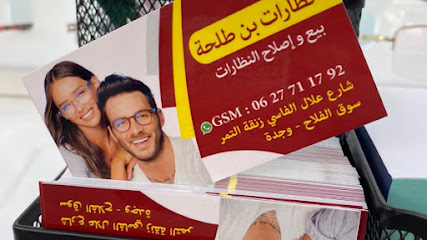
Azia.ma
Experience the elegance of Moroccan fashion at Azia.ma, Oujda's premier women's clothing store with stylish selections and reasonable prices.
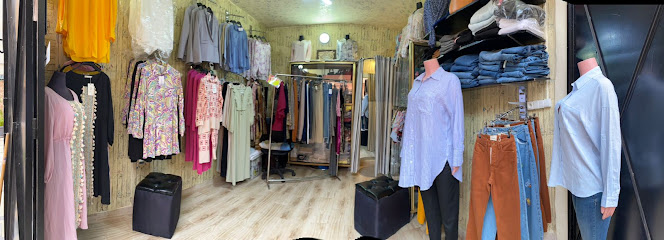
Boutique For She
Explore the stylish offerings at Boutique For She, the go-to women's clothing store in Oujda, Morocco, blending local charm with contemporary fashion.
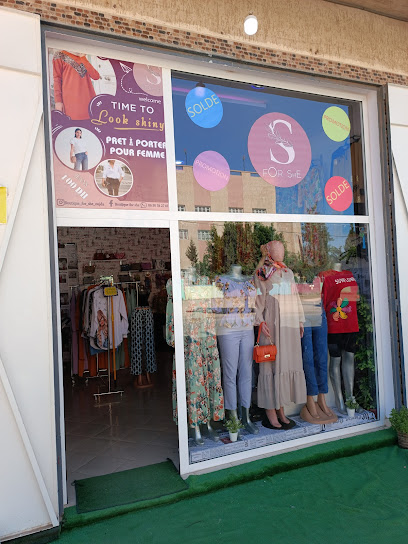
ÔGift
Explore ÔGift in Oujda for a unique shopping experience with authentic Moroccan souvenirs and handcrafted treasures.

Guessous pyjamas
Explore the vibrant world of Moroccan craftsmanship at Guessous Pyjamas, a unique gift shop in Oujda offering exquisite pyjamas and treasures.
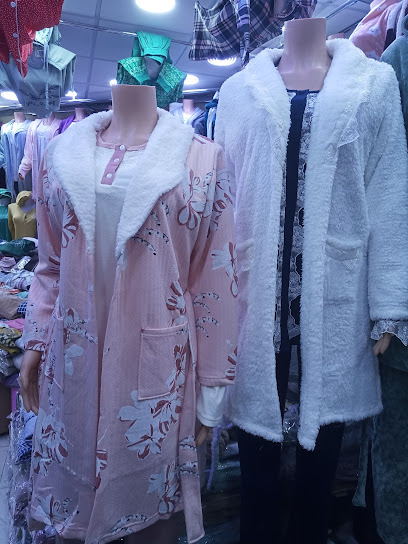
Boutique Oujda
Explore Boutique Oujda, where vibrant posters showcase the rich culture and artistry of Morocco, perfect for unique souvenirs.

Boutique Kssar Djeans
Explore the stylish offerings at Boutique Kssar Djeans in Oujda, a unique clothing store celebrating local craftsmanship and contemporary fashion.
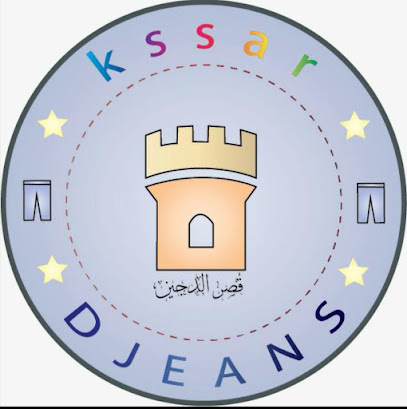
Essential bars & hidden hideouts
Royal Wing
Experience the perfect blend of grilled cuisine and family-friendly fun at Royal Wing, Oujda's premier dining and recreation destination.
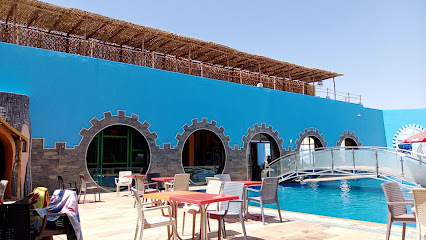
Cafe Delight
Discover the vibrant flavors of Café Delight in Oujda, a grill that offers an exquisite dining experience with a local twist.
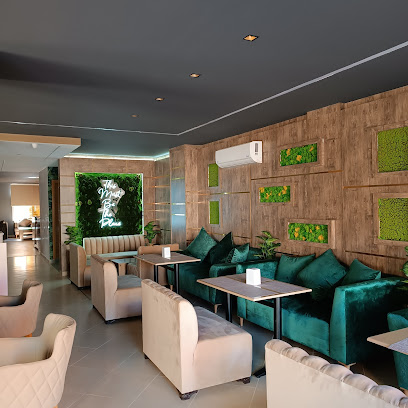
Venise : Café Restaurant
Discover the essence of Moroccan grilling at Café Restaurant Venise in Oujda, where every meal is a celebration of flavor and warmth.
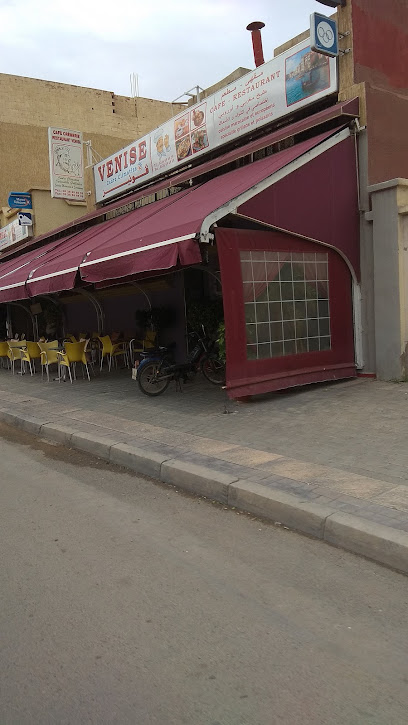
Rosamar
Discover the vibrant flavors of Moroccan cuisine at Rosamar, Oujda's premier grill restaurant, specializing in authentic grilled dishes and local culinary traditions.
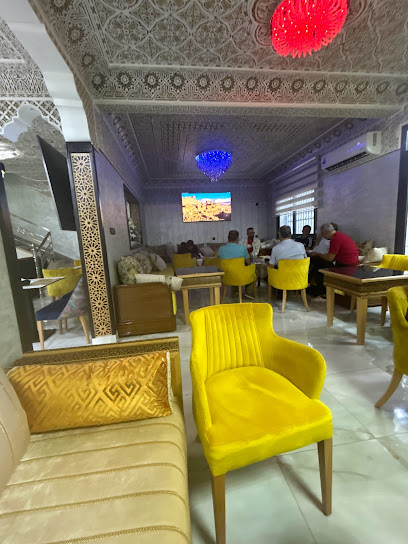
Salle jeux Abdou Malih
Discover the lively ambiance of Salle jeux Abdou Malih, a bar in Oujda offering games, drinks, and an authentic taste of local nightlife.

GRAVITY
Discover GRAVITY in Oujda: A delightful grill and coffee shop offering a unique fusion of flavors in a cozy atmosphere.
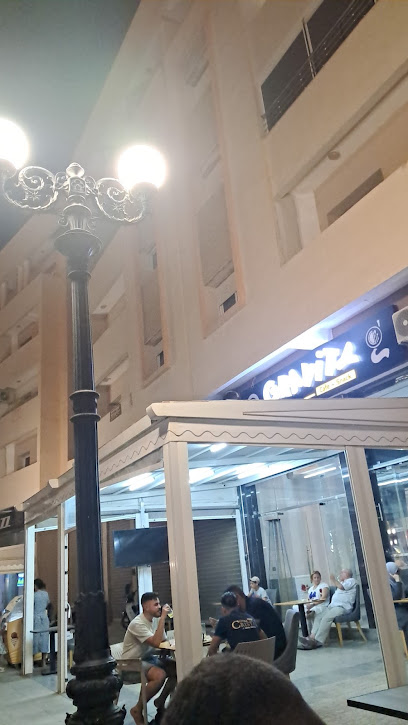
MAMOUN
Experience the vibrant nightlife of Oujda at Mamoun, a bar that combines local charm with modern flair for an unforgettable evening.

Ali baba oujda
Discover the rich flavors of Moroccan cuisine at Ali Baba Oujda, where every meal is a celebration of taste and tradition.
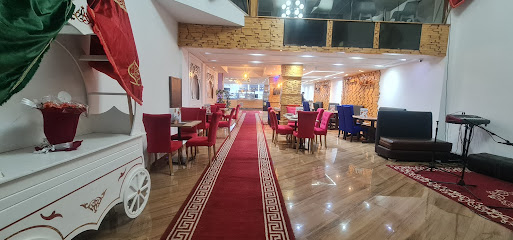
BELVÉDÈRE
Explore Belvédère in Oujda, a unique bar offering a cozy atmosphere and a diverse selection of drinks, perfect for relaxation and socializing.

Foucha
Experience the vibrant nightlife of Oujda at Foucha Bar, where local flavors and a welcoming atmosphere come together for an unforgettable evening.

Skm prospection Maroc
Experience the heart of Oujda's nightlife at Skm Prospection Maroc, where local culture meets vibrant entertainment in a welcoming pub atmosphere.

Mouhamed
Experience the vibrant nightlife at Mouhamed, Oujda's favorite bar offering a lively atmosphere and a diverse drink selection.

Pam
Experience the vibrant nightlife at Pam, Oujda's premier bar offering local flavors and a welcoming atmosphere for all visitors.

Salazar
Explore the vibrant nightlife of Oujda at Salazar, a bar that offers a perfect blend of local culture and refreshing drinks.

Mizyan
Experience the vibrant nightlife of Oujda at Mizyan, where Moroccan culture meets a lively bar atmosphere.
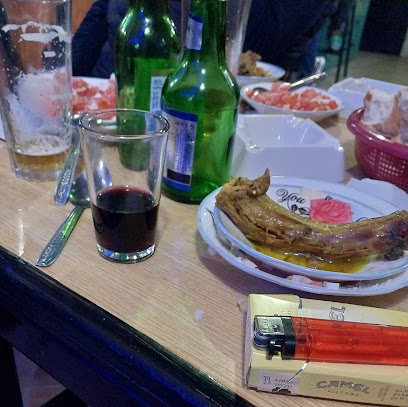
Local Phrases
-
- Helloسلام
[salaam] - Goodbyeالوداع
[alwadaa] - Yesنعم
[naam] - Noلا
[laa] - Please/You're welcomeمن فضلك
[min fadlik] - Thank youشكرا
[shukran] - Excuse me/Sorryعذرا
[aathiraa] - How are you?كيف حالك؟
[kayfa halik?] - Fine. And you?بخير. وأنت؟
[bikhayr. wa ant?] - Do you speak English?هل تتحدث الإنجليزية؟
[hal tatahadath al'inglizia?] - I don't understandلا أفهم
[laa afham]
- Helloسلام
-
- I'd like to see the menu, pleaseأريد أن أرى القائمة، من فضلك
[uridu an ara alqa'imah, min fadlik] - I don't eat meatأنا لا أكل اللحم
[ana la aakul allahm] - Cheers!في صحتك!
[fi sahtak!] - I would like to pay, pleaseأود أن أدفع، من فضلك
[awadu an adfaa, min fadlik]
- I'd like to see the menu, pleaseأريد أن أرى القائمة، من فضلك
-
- Help!النجدة!
[alnajdah!] - Go away!انصرف!
[ansarif!] - Call the Police!اتصل بالشرطة!
[atassil bialsuritah!] - Call a doctor!اتصل بطبيب!
[atassil batabib!] - I'm lostضاعت مني الطريق
[da'at minni alttariq] - I'm illأنا مريض
[ana mareed]
- Help!النجدة!
-
- I'd like to buy...أريد أن أشتري...
[uridu an ashtari...] - I'm just lookingأنا فقط أتفرج
[ana faqat atafarraj] - How much is it?كم هو ثمنه؟
[kam huwa thamanuh?] - That's too expensiveهذا غالي جدا
[hatha ghali jiddan] - Can you lower the price?هل يمكنك خفض السعر؟
[hal yumkinuka khafdh alsi'r?]
- I'd like to buy...أريد أن أشتري...
-
- What time is it?كم الساعة؟
[kam alsaa'ah?] - It's one o'clockالساعة الواحدة
[alsaa'ah alwahidah] - Half past (10)العاشر والنصف
[al'ashir wannahf] - Morningالصباح
[assabah] - Afternoonالمساء
[almasa'] - Eveningالمساء
[almasa'] - Yesterdayالبارحة
[albarihah] - Todayاليوم
[alyawm] - Tomorrowغدا
[ghadan] - 1واحد
[wahid] - 2اثنان
[ithnan] - 3ثلاثة
[thalatha] - 4أربعة
[arba'a] - 5خمسة
[khamsa] - 6ستة
[sitta] - 7سبعة
[saba'a] - 8ثمانية
[thamaniya] - 9تسعة
[tis'ah] - 10عشرة
[asharah]
- What time is it?كم الساعة؟
-
- Where's a/the...?أين ...؟
[ayna ...?] - What's the address?ما هو العنوان؟
[ma huwa al'unaan?] - Can you show me (on the map)?هل يمكنك أن تريني (على الخريطة)؟
[hal yumkinuk an tureeni (ala alkhareetah)?] - When's the next (bus)?متى القادم (الحافلة)؟
[mata alqadim (alhafilah)?] - A ticket (to ....)تذكرة (إلى ...)
[tadhkirah (ila ...)]
- Where's a/the...?أين ...؟
History of Oujda
-
Oujda was founded in 994 by Ziri ibn Atiyya, the chief of the Berber Zenata Maghrawa tribe. The city served as a strategic military outpost due to its location near the Algerian border, facilitating both defense and trade. The early years of Oujda were marked by its role as a battleground in various regional conflicts.
-
During the 11th and 12th centuries, Oujda came under the control of the Almoravid and later the Almohad dynasties. These powerful Berber empires contributed to the city's growth by enhancing its fortifications and encouraging trade. The Almohad period, in particular, saw the construction of several significant architectural landmarks.
-
In the 13th century, Oujda fell under the influence of the Merinid dynasty. This era was marked by notable developments in architecture and urban planning. The Merinids built the Great Mosque of Oujda and reinforced the city walls, establishing Oujda as a significant center of commerce and learning in the region.
-
Oujda was occupied by French colonial forces in 1907, becoming part of the French Protectorate in Morocco. The French influence led to the modernization of the city's infrastructure, including the introduction of railways and new urban planning techniques. Despite this, Oujda remained a focal point for anti-colonial sentiment and nationalist movements.
-
Following Morocco's independence in 1956, Oujda experienced significant growth and modernization. The city's strategic location continued to play an important role in its development. Oujda became a hub for cross-border trade and cultural exchange with Algeria, even as political tensions sometimes strained relations between the two countries.
-
Oujda is renowned for its rich cultural heritage, including traditional music, dance, and cuisine. The city hosts several annual festivals, such as the International Festival of Rai Music, which celebrates the region's unique musical traditions. These cultural events draw visitors from around the world and highlight Oujda's vibrant local culture.
Oujda Essentials
-
Oujda is located in the northeastern part of Morocco, close to the Algerian border. The nearest airport is Oujda Angads Airport (OUD), which is about 12 kilometers from the city center. Several international and domestic flights operate to and from this airport. From the airport, you can take a taxi or rent a car to reach the city. Additionally, Oujda is well-connected by train and bus services from major Moroccan cities like Casablanca, Rabat, and Fes.
-
Within Oujda, you can use taxis, which are relatively affordable. There are two types of taxis: 'Petit Taxis' for trips within the city and 'Grand Taxis' for longer distances and trips to nearby towns. Public buses are also available and are an economical way to get around. For a more personalized experience, consider renting a car to explore the city and its surroundings at your own pace.
-
The official currency in Morocco is the Moroccan Dirham (MAD). Credit cards are accepted in larger hotels, restaurants, and shops, but it is advisable to carry cash for smaller establishments and local markets. ATMs are widely available throughout Oujda, so withdrawing cash is convenient. Ensure you have some dirhams on hand before venturing out, especially if you plan to visit rural areas.
-
Oujda is generally a safe city for tourists, but it is always best to take standard precautions. Avoid walking alone at night in poorly lit areas and be mindful of your belongings in crowded places. While there are no specific high-crime areas targeting tourists, it is wise to stay vigilant and aware of your surroundings, particularly in the city center and at popular tourist spots.
-
In case of emergency, dial 19 to reach the police or 15 for medical assistance. Oujda has several hospitals and clinics that can provide medical care. It is recommended to have travel insurance that covers medical emergencies. For minor health issues, there are many pharmacies where you can purchase over-the-counter medications. Familiarize yourself with the locations of nearby medical facilities and have local emergency numbers saved in your phone.
-
Fashion: Do dress modestly, especially when visiting religious sites. Avoid wearing revealing clothing. Religion: Do respect local customs and traditions. Always cover your head when entering mosques and religious sites. Public Transport: Do be respectful and give up your seat to elderly passengers. Don't eat or drink on public transport. Greetings: Do greet people with a handshake. A slight bow of the head is also a sign of respect. Eating & Drinking: Do try local delicacies and accept food offerings graciously. Don’t refuse hospitality, as it is considered impolite.
-
To experience Oujda like a local, visit the local markets such as Souk El Ma, where you can buy fresh produce and traditional Moroccan goods. Engage with locals, as they are often friendly and willing to share stories about the city's history and culture. Don't miss visiting the beautiful Lalla Aicha Park for a relaxing afternoon. For a unique experience, take a short trip to the nearby Saidia Beach, known for its stunning coastline and crystal-clear waters.
Trending Landmark in Oujda
-
Bab Sidi Abdel Wahab
-
نزل أطلس
-
Parc Lalla Aicha
-
SIDI MAAFA Forest
-
Parc Écologique d'Oujda
-
M & J
-
Parc Lalla Meriem
-
Complexe Le Tropical
-
Mohammed VI Mosque
-
Radwan mosque
-
Place Bab Algharbi Garden
-
Mosque of Omar bin Abdul Aziz
-
Dar Berrissoul
-
Les Trois Fontaines (Fontaine de la kasbah)
-
BaB Algharbi باب الغربي
Nearby Cities to Oujda
-
Things To Do in Tlemcen
-
Things To Do in Oran
-
Things To Do in Almeria
-
Things To Do in Fes
-
Things To Do in Chefchaouen
-
Things To Do in Málaga
-
Things To Do in Tetouan
-
Things To Do in Meknes
-
Things To Do in Europa Point
-
Things To Do in Gorham's Cave Complex
-
Things To Do in St. Michael's Cave
-
Things To Do in Catalan Bay
-
Things To Do in Alameda Botanic Gardens
-
Things To Do in Queensway Quay Marina
-
Things To Do in Moorish Castle












